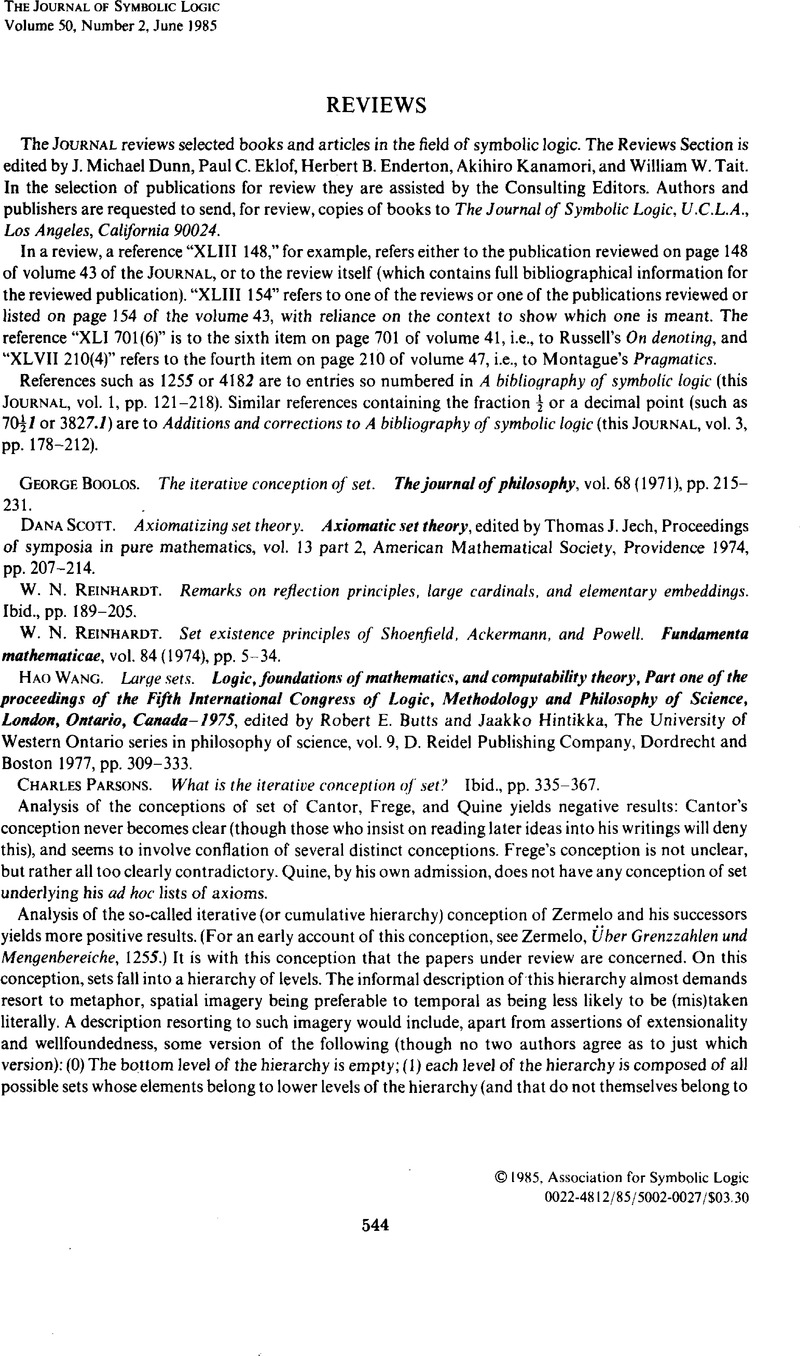Crossref Citations
This article has been cited by the following publications. This list is generated based on data provided by Crossref.
Rin, Benjamin
2015.
Transfinite recursion and computation in the iterative conception of set.
Synthese,
Vol. 192,
Issue. 8,
p.
2437.
Button, Tim
and
Walsh, Sean
2016.
Structure and Categoricity: Determinacy of Reference and Truth Value in the Philosophy of Mathematics.
Philosophia Mathematica,
Vol. 24,
Issue. 3,
p.
283.





